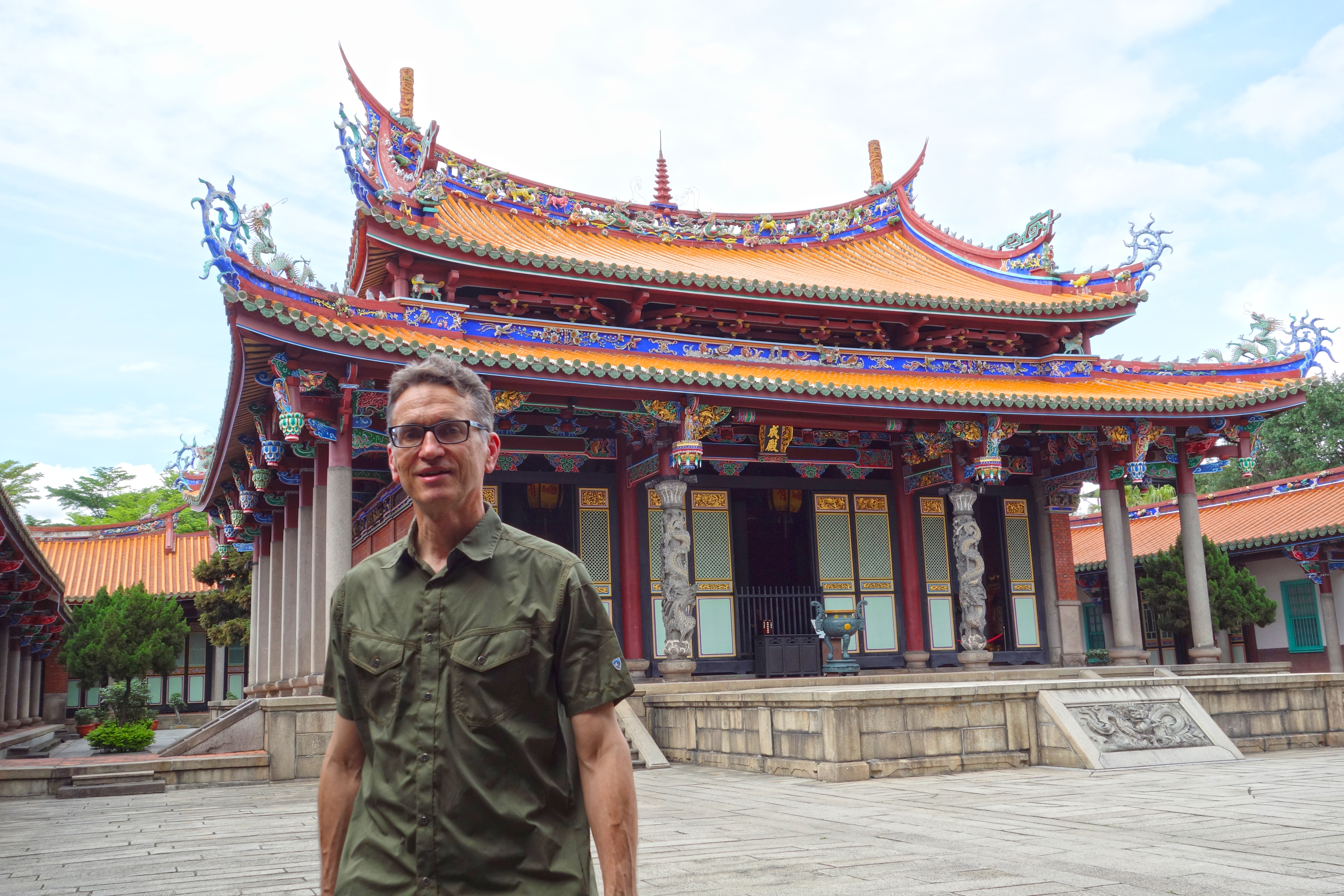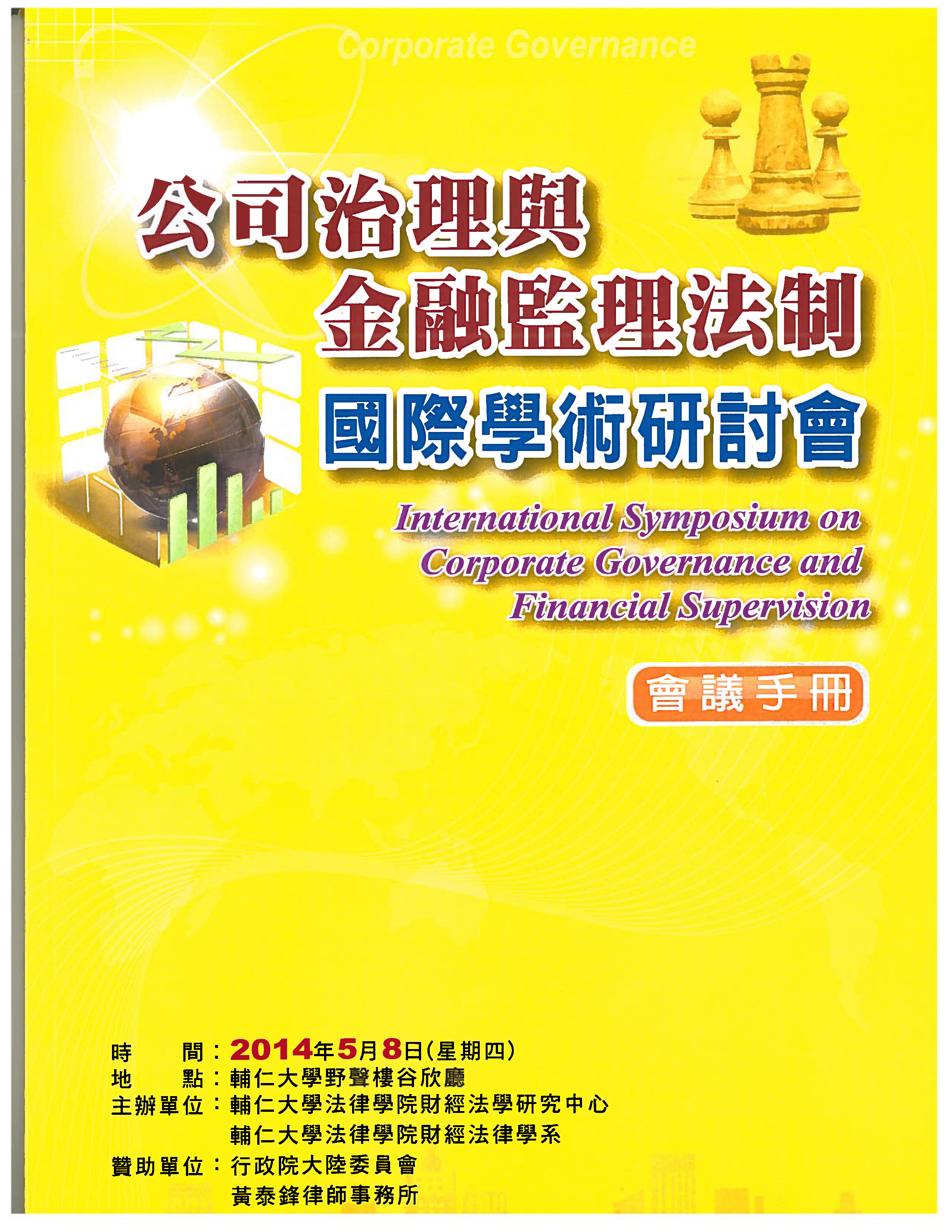
Professor Roderick J. Wood presented a paper entitled "The Concept of a Security Interest: The Canadian Experience" at the International Symposium on Corporate Governance and Financial Supervision in Taipei, Taiwan on May 8, 2014 at the Fu Jen Catholic University School of Law. Professor Wood's paper dealt with the reform of secured transaction law in Canada and the United States, and the subsequent spread of this model to New Zealand and Australia and more recently to several Polynesian countries and to Jamaica. He examined the reasons why this model of reform has been embraced in commonwealth countries despite the fact that the former law, based on the English model, permitted the granting of a security interest in virtually all types of assets, including future assets. The primary reason for the reform of the secured transactions system was to put into place a simpler system that adopted a single unified concept of a security interest in place of a variety of different security devices that were subject to different rules and requirements. This allowed for a simpler rule for ranking priorities based on the time of registration.

Other presenters at the symposium included Professor John Lowry of the University of Hong Kong and Associate Professor Yen-Lin Agnes Chiu of the Fu Jen Catholic University School of Law in Taiwan. While at the symposium, Professor Wood welcomed the opportunity to learn more about Taiwanese secured transactions law and to converse with academics about legal education in Taiwan. He was very interested to discover that a current controversy concerns the bar exam pass rate which has recently risen to slightly above 10%. This is a significantly higher rate than in the past where the rate was as low as 1%. Because of the low pass rates it frequently takes about eight years for a candidate to pass the bar exams in Taiwan. There are currently fewer than 7700 practising lawyers in a country of 23 million people.
